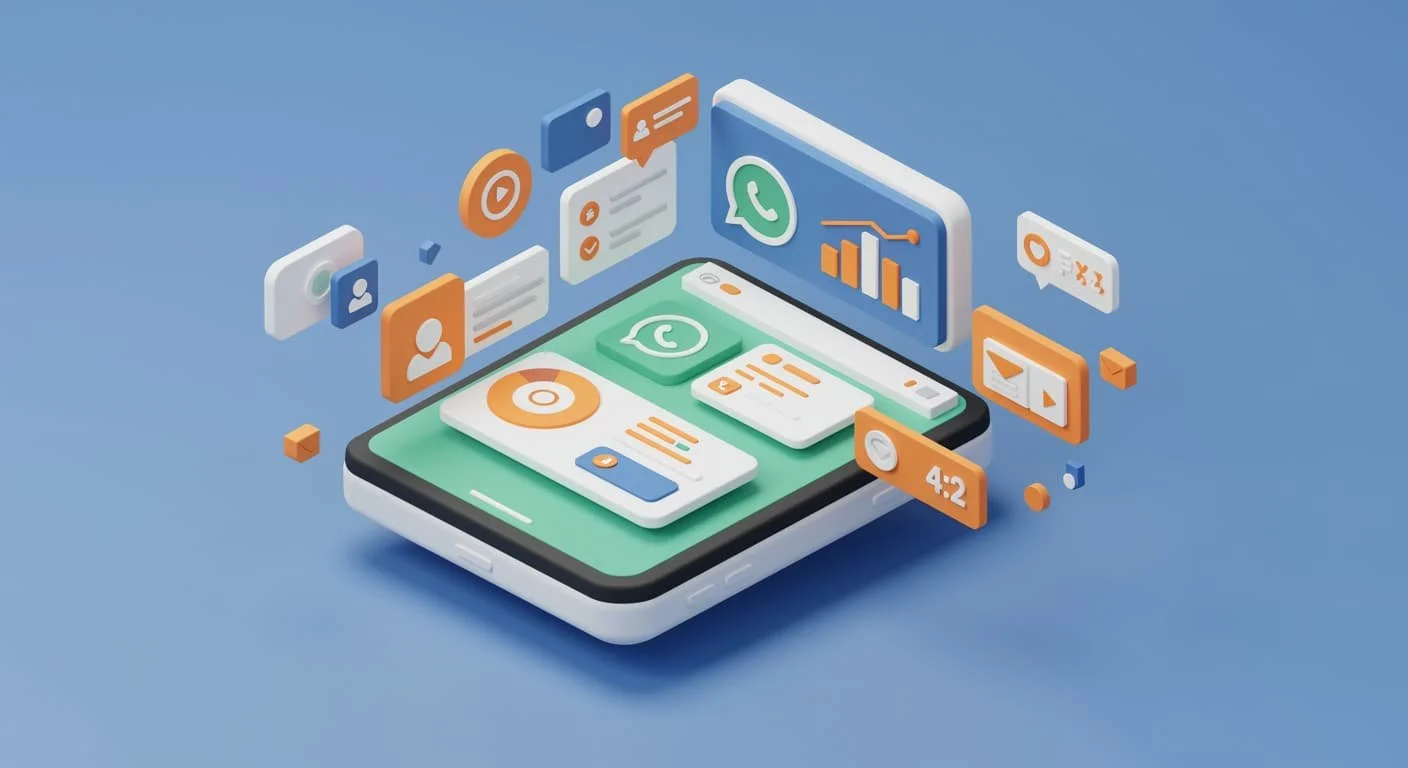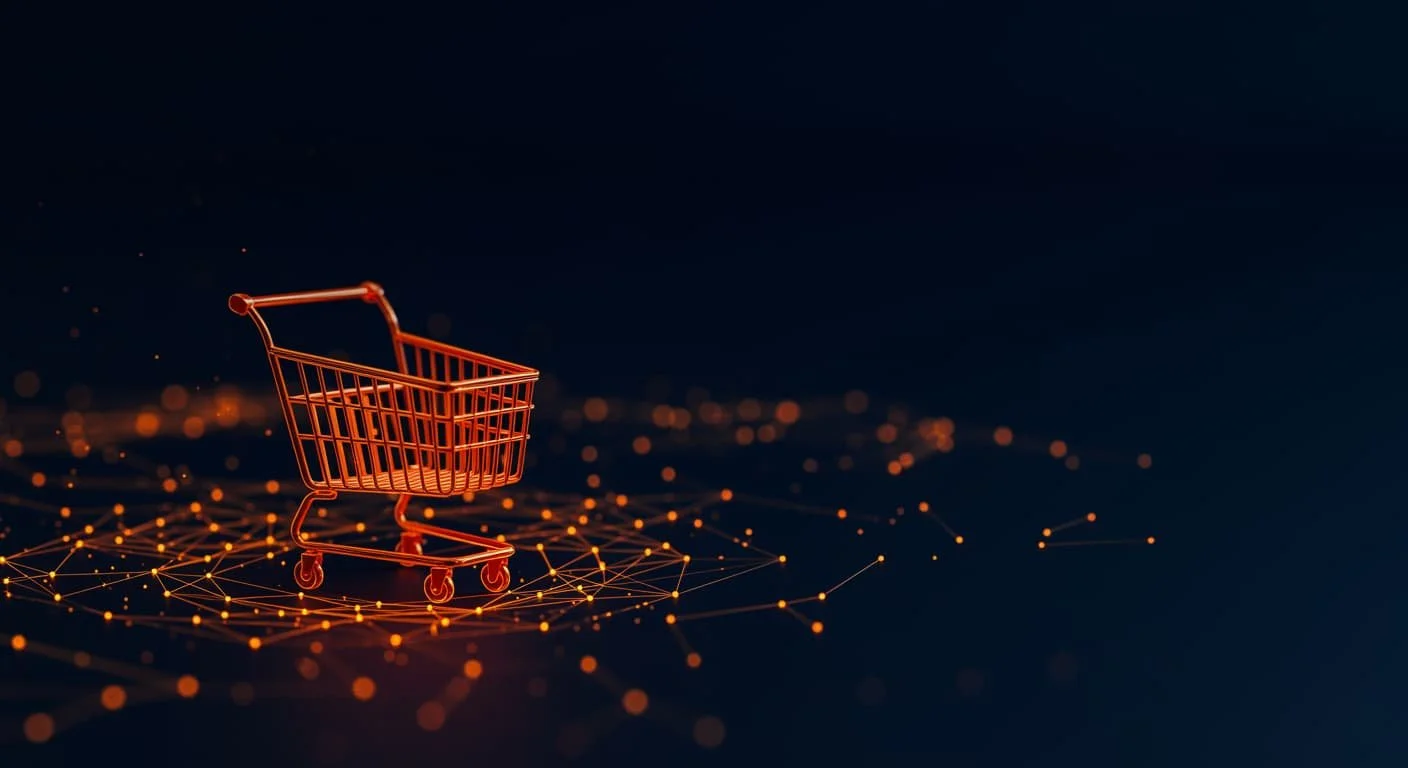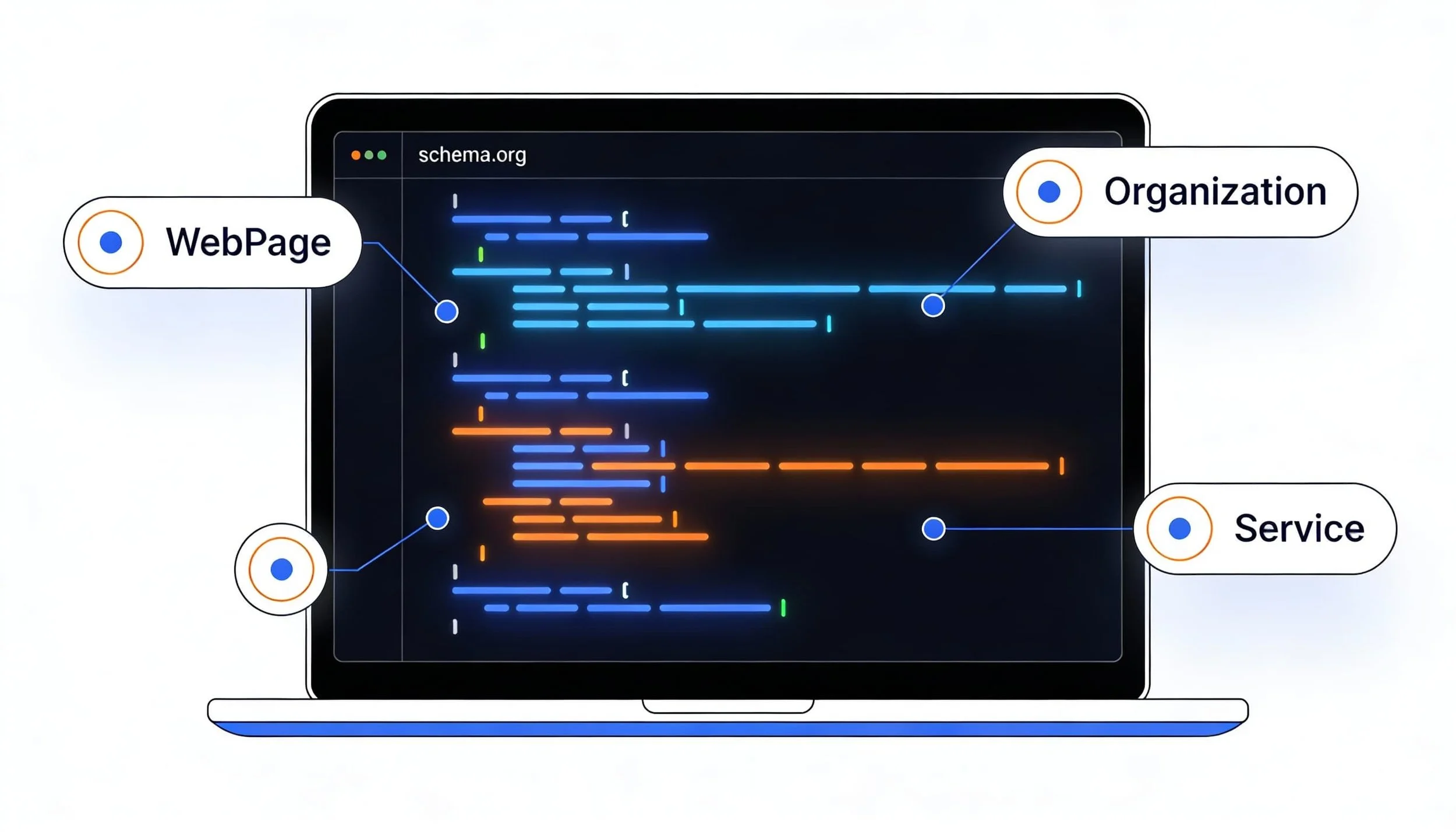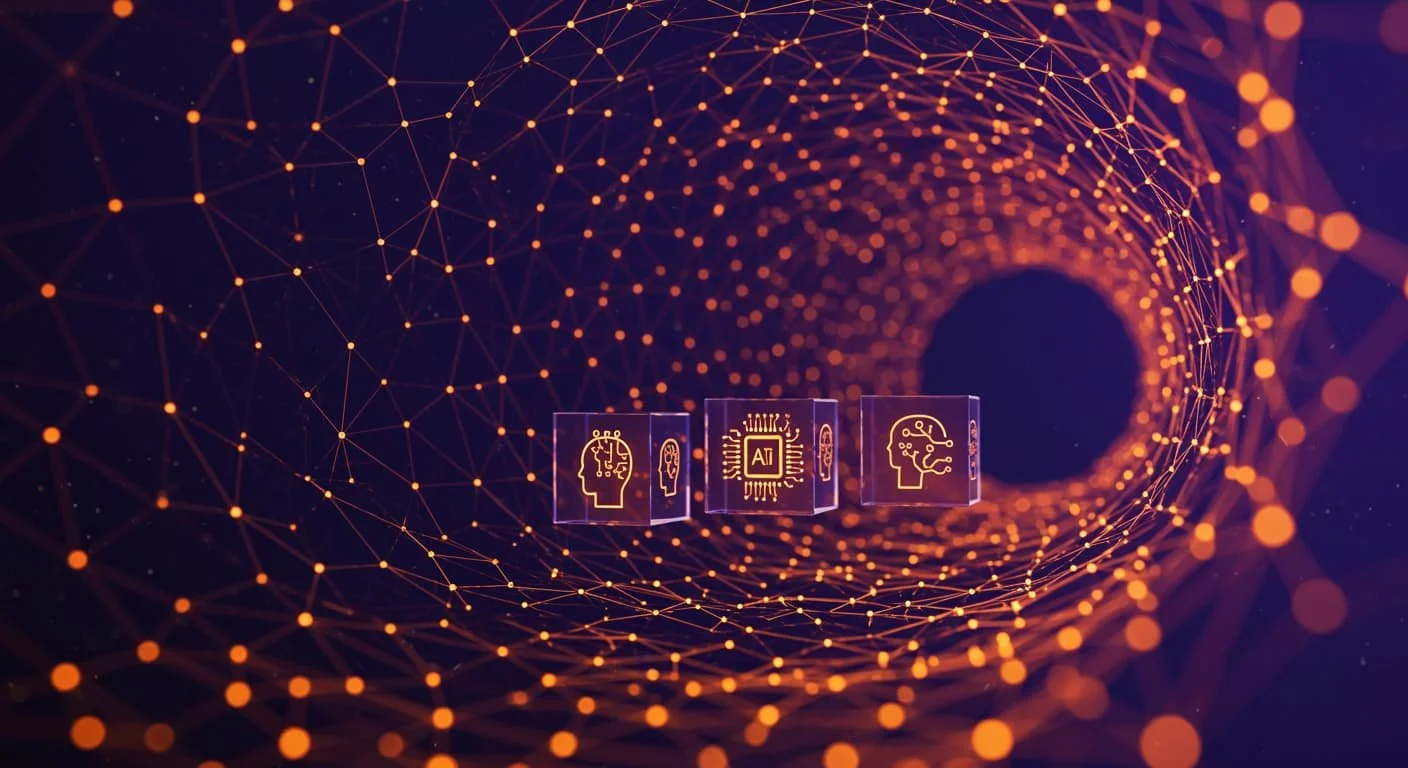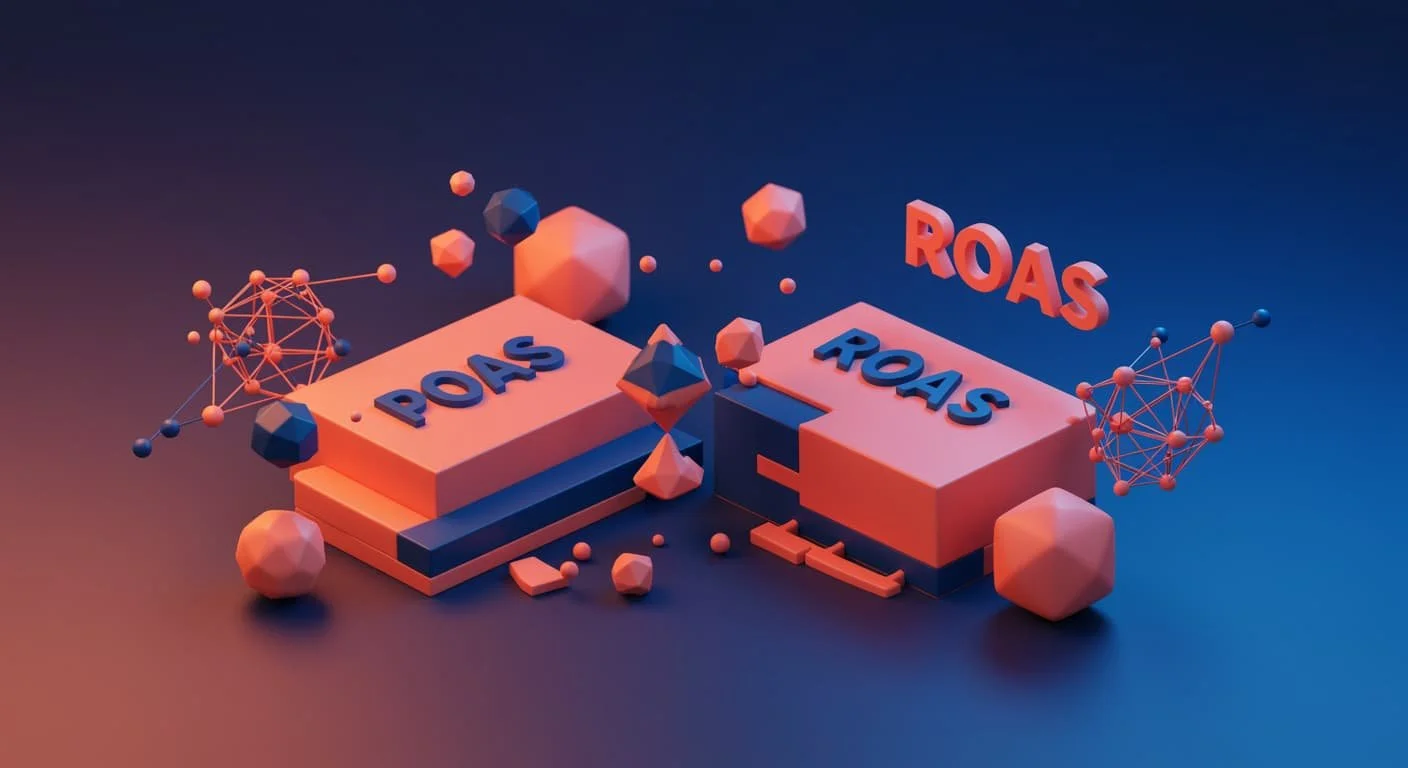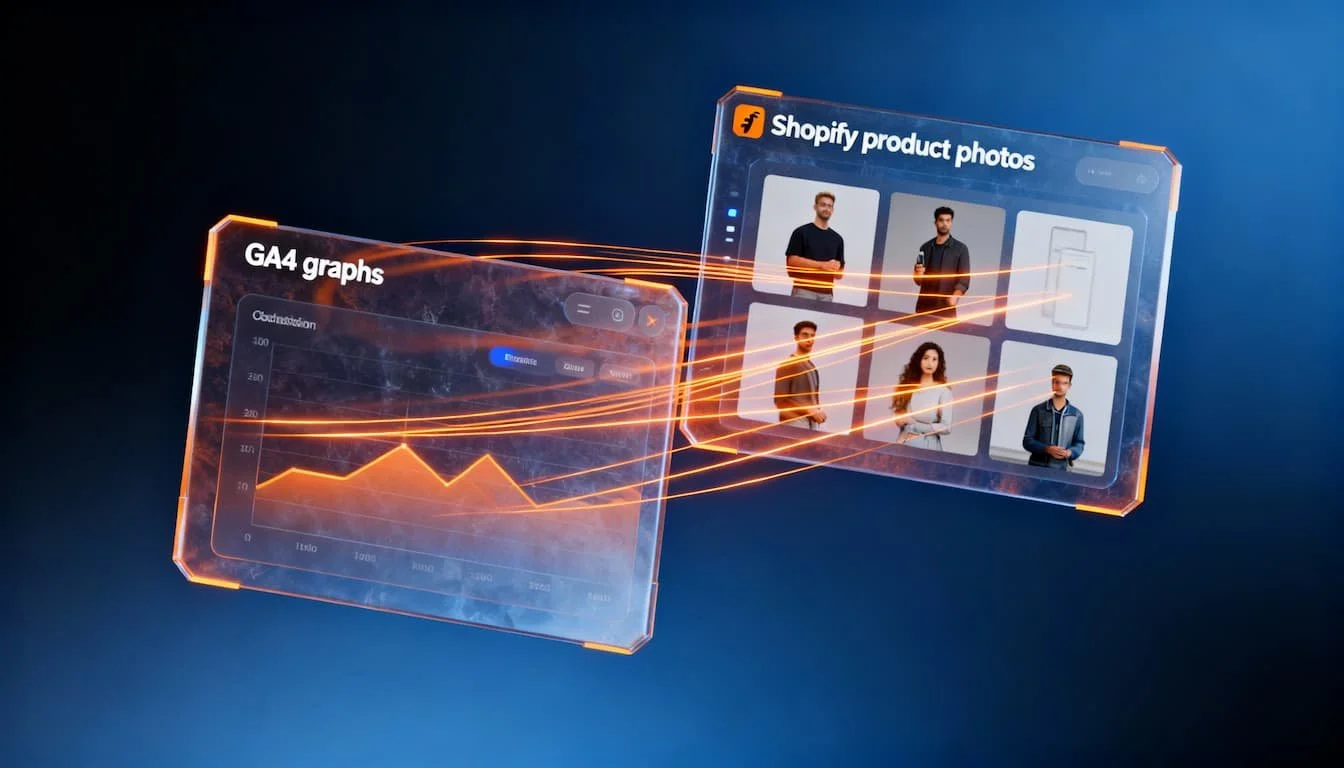Marketing Strategy with Autonomous AI Agents for SMEs
- Autonomous Revolution: AI agents independently perform marketing tasks, learn, and continuously optimize
- 5 Application Domains: Ad optimization, conversation automation, personalized emails, content creation, e-commerce personalization
- Measurable Impact: 25-40% higher conversions, 30-50% time savings, 10-20% revenue increase
- SME Accessible: Start lean with one domain, proven tools via Make.com/Zapier integrations
- Future Trends: Multi-agent systems, low-code integrations, AI co-pilots, and hyper-personalization
The rise of autonomous AI and AI agents offers unprecedented opportunities for SMEs in digital marketing and e-commerce. While AI tools were previously mainly supportive, we now see an increasing number of "autonomous" applications: systems that independently make decisions, learn, and perform actions. How can you, as a smart entrepreneur, get started with this? In this article, you will discover practical examples, concrete tools, and how ClickForest can help you quickly gain an advantage.
What exactly are autonomous AI and AI agents?
Autonomous AI refers to systems that perform tasks entirely independently, based on predefined objectives and continuous self-learning algorithms. An AI agent is a digital entity that autonomously takes actions within an environment, often with a clear directive ("maximize conversions," "optimize content," etc.).
Previously, as a marketer, you had to constantly manage things yourself. Today, AI agents can:
Set up and optimize A/B tests
Optimize campaigns based on ROAS or CPA
Send personalized emails and content
Automatically update product recommendations
Guide conversation flows in chatbots
“We have known for some time that AI would fundamentally change how consumers approach online shopping, but it is now clear that we are no longer talking about the future.”
5 areas where you can already deploy autonomous AI today
1. Ad Optimization
Most SMEs already use Performance Max in Google Ads, but that's just the beginning. Modern AI agents (such as Madgicx, Kua.ai, AdCreative.ai) go a step further:
Automatically reallocate budget across campaigns based on performance
A/B test creatives without human intervention
Make recommendations for targeting
Predictive analysis of conversion opportunities
Read also: Performance marketing in the AI era
2. Conversation Automation and Sales via Chat
AI chatbots are evolving into autonomous sales agents. Tools like Drift, Intercom Fin AI, and ChatGPT-custom agents:
Detect in real time what a visitor is looking for
Guide the conversation towards conversion
Can make personalized offers
Learn based on interactions
“Most consumers surveyed - 61% - have used general AI tools to help them shop online, with more than half reporting that their search habits have become more conversational.”
3. Personalized Emails and Content Flows
AI agents can independently manage email campaigns with tools like Rasa.io, Seventh Sense, or Flowrite. Specifically:
Automatically personalize based on behavior and segment
Optimize sending schedules for each individual
A/B test subject lines and content
Build fully automated nurture flows
Also read: Lead Generation & Follow-up
4. Content Creation and Optimization
Autonomous AI-driven tools like Jasper, Copy.ai, and Frase.io can:
Independently generate content around trending topics
Apply SEO optimization based on SERP analysis
Automatically update and rewrite old content
Create multilingual variants for internationalization
“Companies should use AI to enhance the existing customer journey rather than fundamentally change it, as customer experience leaders must meet consumers' rapidly evolving needs.”
Also read: Combining AI and SEO
5. E-commerce Personalization and Recommendations
In e-commerce, AI agents can:
Adjust product recommendations in real time
Automatically push seasonal offers
Autonomously adjust customer segments
Optimize inventory and price adjustments based on demand
Tools like Recombee, Crossing Minds, and Shopify Magic make this accessible for SMEs today.
Also read: AI and Shopify: Smart Apps and Automations
How to deploy autonomous AI and AI agents without complexity?
Many SMEs think this technology is only for large companies. Nothing could be further from the truth. The key? Start lean:
1. Start with one domain (e.g., email, chat, content, or advertising)
2. Use proven tools with integration capabilities (e.g., Make.com, Zapier, native Shopify apps)
3. Monitor results and adjust
4. Gradually automate more processes
AI automation of your entire marketing funnel — from lead generation to conversion — is also perfectly achievable for SMEs today.
“93% of respondents said it's important for e-commerce websites to understand conversational searches, as search behavior becomes more natural and query-based.”
What does it deliver for your marketing?
International benchmarks show:
+25-40% higher conversion rates with AI-optimized emails
-30-50% time savings in campaign management
+10-20% revenue increase with personalized recommendations
+15-30% more qualified leads through AI chat agents
SMEs can significantly strengthen their AI lead generation with AI-driven chatbots and personalized flows, resulting in more qualified leads and lower acquisition costs.
Also read: Top AI tools for marketers
Pitfalls to avoid
While the possibilities are vast, there are also key considerations:
Don't accept a black box → choose tools that transparently show your AI decisions
Maintain human oversight → AI agents can learn, but human judgment remains crucial
Respect data privacy → ensure you operate in a GDPR-compliant manner
Don't rely solely on AI → AI strengthens your strategy, it is not a strategy itself
Mini case study: how a ClickForest client made 3 processes autonomous
A ClickForest client (Shopify fashion webshop) gradually implemented autonomous AI:
AI-driven emails increased the open rate by 32%
AI chatbot brought in 18% of sales without human support
AI ad optimization reduced CPA by 27% in Meta Ads
Within 3 months, the investment was fully recouped.
Also read: AI for Growth
What does the future hold?
The following developments we anticipate:
Multi-agent systems: AI agents that collaborate (e.g., chatbot + email agent + ad agent)
More low-code integrations: easier to combine with existing tools
AI co-pilots in marketing tools: every tool gets its own smart helper
Hyper-personalized customer journeys: AI adjusts flows in real-time per visitor
“Organizations using AI automation tools save an average of 2.5 hours per employee per day while improving output quality by 35%.”
In summary
Autonomous AI and AI agents offer immense opportunities for digital marketing and e-commerce. Today, SMEs can already:
Generate more leads with AI-driven chat and email
Increase conversions with autonomous ad optimization
Automate content creation and SEO
Intelligently expand personalization in their webshop
Do you want to know how to specifically implement this for your business? With ClickForest's AI audit for SMEs, we precisely map out where autonomous AI can already make an impact in your marketing today. Our AI audit checklist quickly reveals which autonomous AI tools and AI agents will have the most impact on your marketing and e-commerce.
👉 Ready to strengthen your marketing with smart AI agents? Request your free audit and discover your AI potential.

🚀 More leads, higher conversion, better ROI
This article provided you with insights. Now it's time for action. Whether you want to build a profitable webshop, generate more revenue from performance marketing or SEO, or grow with AI marketing – we provide concrete support to help you move forward.
💬 Discuss your challenge directly with Frederiek: Schedule a free strategy call or send us a message
📧 Prefer to email? Send your question to frederiek@clickforest.com or call +32 473 84 66 27
Strategy without action remains theory. Let's take your next step together.
Frequently asked questions about AI agents
-
Autonomous AI refers to systems that independently perform marketing tasks and learn based on results, without manual intervention.
-
An AI agent is a digital entity that performs marketing actions, such as optimizing campaigns, creating personalized content, or following up on leads.
-
Absolutely. With tools like Make, Zapier, and specialized AI platforms, SMEs can also implement autonomous AI without significant IT complexity.
-
Popular applications include email marketing, ad optimization, chatbots, personalized content, and product recommendations.
-
Yes, provided you use tools that respect data privacy and offer transparency regarding AI decisions.
-
Higher conversions, lower cost per acquisition, time savings in marketing workflows, and improved customer experience.
-
Not necessarily. Many tools offer low-cost entry subscriptions and pay-as-you-go models suitable for SMEs.
-
Start with one domain (e.g., chat or email), test the results, and gradually expand.
-
Absolutely. AI agents enhance your marketing, but human oversight remains essential for strategy and ethics.
-
Multi-agent systems, where different AIs collaborate to fully autonomously manage personalized customer journeys.
Sources and references
AI Agents market statistics and growth:
Grand View Research: ‘AI Agents Market Size And Share | Industry Report, 2033’ – https://www.grandviewresearch.com/industry-analysis/ai-agents-market-report
Grand View Research: ‘Autonomous AI And Autonomous Agents Market Report 2030’ – https://www.grandviewresearch.com/industry-analysis/autonomous-ai-autonomous-agents-market-report
Litslink: ‘Market Statistics of AI Agents: Trends and Insights (2025)’ – https://litslink.com/blog/ai-agent-statistics
AI agents in marketing and use cases:
Citrusbug: ‘AI Agents Statistics 2025: Adoption, Market Growth and Key Trends’ – https://citrusbug.com/blog/ai-agents-statistics/
Marketing automation ROI and performance:
Digital Silk: ‘30 Marketing Automation Statistics for 2025: ROI, Trends & More’ – https://www.digitalsilk.com/digital-trends/marketing-automation-statistics/
inBeat: ‘Key Marketing Automation Statistics in 2025’ – https://inbeat.agency/blog/marketing-automation-statistics
AI and broader market context:
MarketsandMarkets (summary): ‘AI Agents Market worth $47.1 billion by 2030’ – https://www.linkedin.com/pulse/ai-agents-market-worth-471-billion-2030-exclusive-report-samad-pol7f/


